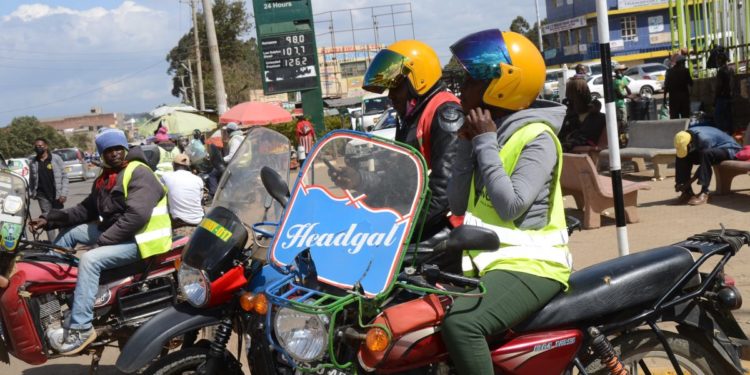A new Senate bill aims to rein in Kenya’s booming motorcycle taxi sector through stricter county-level oversight and penalties for rider offenses.
The Public Transport (Motorcycle Regulation) Bill calls for establishing a County Motorcycle Transport and Safety Board in each of Kenya’s 47 counties. These boards would be responsible for policies, regulations, rider and vehicle licensing, route planning, safety programs, and enforcement.
“This bill puts in place a legal framework to regulate the use of bodabodas for commercial purposes at the county level,” said Boni Khalwale, the senator who introduced the bill. “It concerns county governments as it affects their functions and powers over transport regulation.”
If passed, the law would require all riders to complete county-approved training courses on topics like safe riding techniques, traffic laws, customer care, security awareness and motorcycle maintenance. Clean driving records and insurance would be compulsory.
Read more: Roam launches Kenya’s first locally manufactured electric shuttle bus
Riders would also need to register and obtain licenses from the county boards.
The bill also limits the engine capacity of bodabodas to 250cc and restricts carrying loads over 50 kilograms. Passengers would be required to wear helmets and reflective jackets.
“Every rider of a two-wheeled motorcycle shall carry only one passenger,” the bill states. For three-wheeled bodabodas, the limit would be three passengers.
To curb offenses, the law sets penalties for riding on pavements, riding opposite traffic flow, and for riders menacingly “ganging up” after incidents. Violators would face fines up to KES 100,000 or jail time.
Bodaboda riders have been involved in increasing road offenses and accidents in recent years. A 2022 National Transport and Safety Authority report found that nearly one-third of all road accident deaths in Kenya involved motorcycles.
















